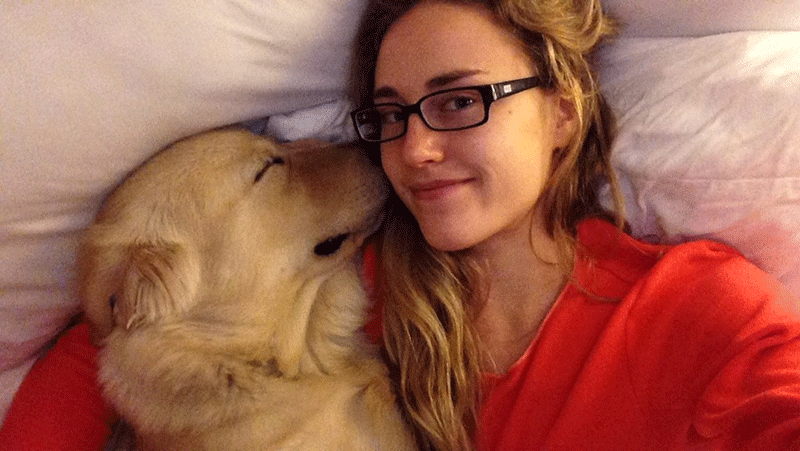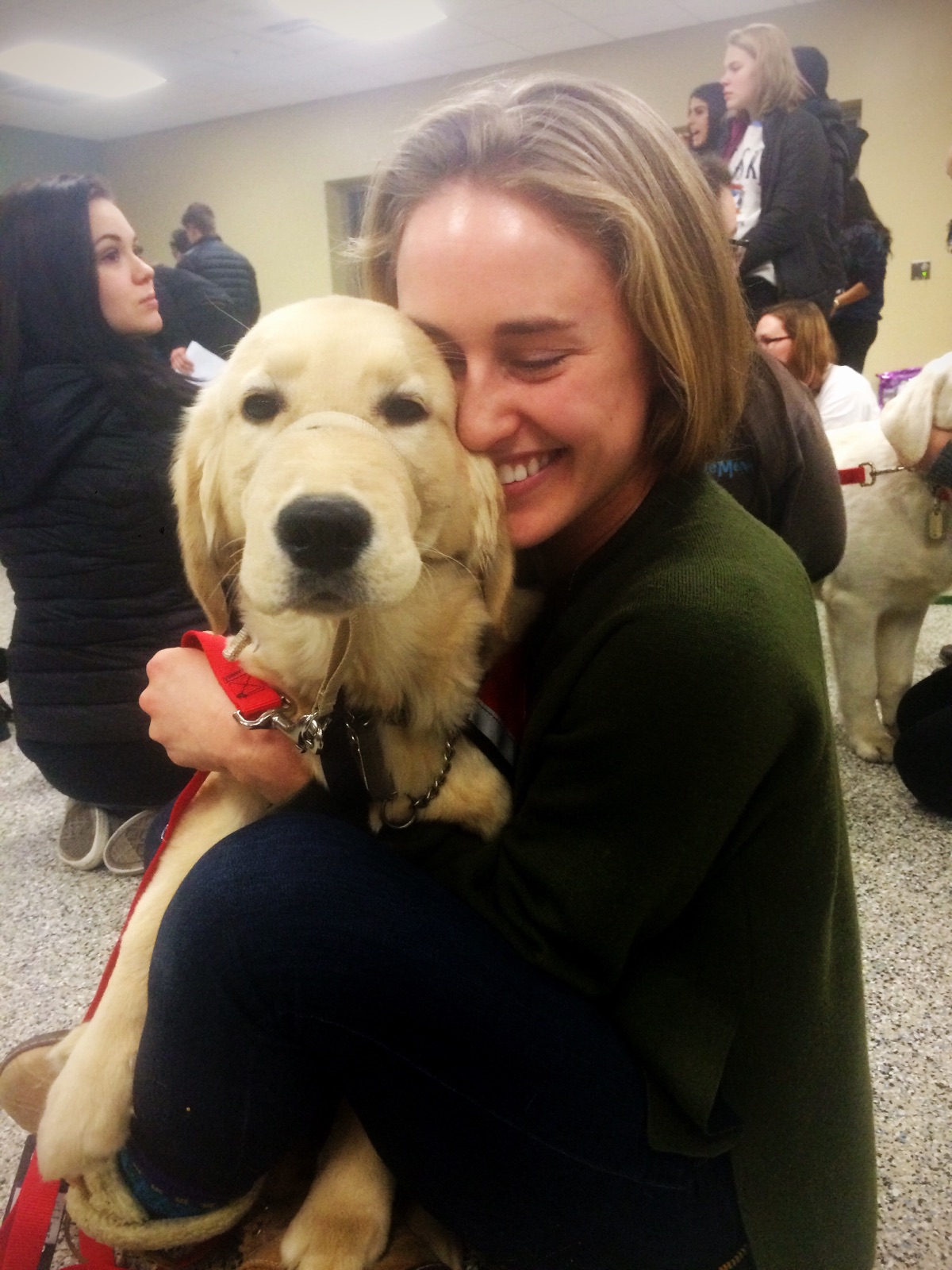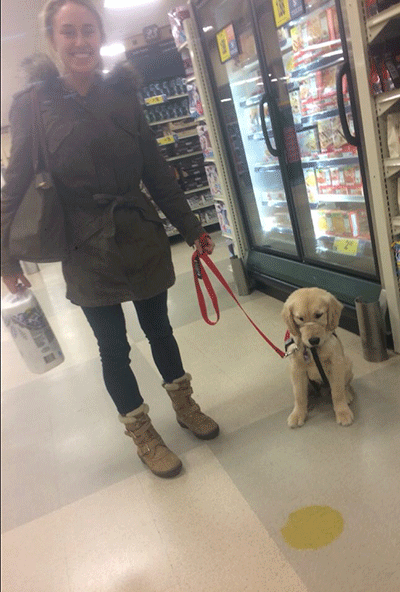

Putting their best paws forward: Miami students foster future service dogs

It was love at first sight for Kate Hovious when she met Tornado. “He would cuddle me, and he would let me cuddle him.”
by Ritter Hoy, university news and communications, and Sarah Mattina, senior strategic communication major
Their look is unmistakable - a bright red vest, four paws, a tail and the will to change a life.
Miamians are seeing them more and more around campus. They are dogs with 4 Paws for Ability, a nonprofit organization based in Xenia. The organization trains service dogs for people with disabilities, and Miami University students foster and socialize the dogs.
Miami is one of 12 universities to regularly host service dogs in training for 4 Paws. The organization is popular on campus, with about 150 group members, more than a dozen student-fosters and 14 dogs in training this fall.
Kate Hovious, a senior kinesiology major from Louisville, got involved with 4 Paws for Ability her first year at Miami. As a junior, Kate opened her heart and home to a 4-month-old golden Labrador named Tornado.
“We place more than 100 service dogs each year with different families, most of them with children,” said Jessa Kenworthy, senior trainer and director of the university foster program at 4 Paws.
One of those children is Kai, a 5-year-old boy with autism. Last week when Kai met his new service dog, Tornado, the team became an international sensation after pictures of their first meeting went viral.
But what goes into training a service dog?
From start to finish it costs more than $22,000 to train and raise a service dog. Families, like Kai’s, generally commit to raising about $15,000.
The dogs undergo three stages of training:
- Phase One, Mission Pawsible - Puppies are sent to prison where inmates, as part of their own rehabilitation process, teach them basic commands and reinforce housebreaking.
- Phase Two, 4 Paws University - Puppies are sent to college students who foster the dogs and encourage socialization.
- Phase Three, Advanced Training - Dogs are returned to 4 Paws to determine their specialty ranging from autism, hearing assistance, mobility assistance and seizure alert.
Dogs are on campus for a semester, and student-fosters bring their service dogs in training to class, meetings, activities, work, events and everywhere else they need to go.
“Our only requirement is that the puppies are a part of your life on campus,” said Kenworthy. “We want you to take the puppy with you to as many places as possible, including class.”
Miami 4 Paws students ask their professors for permission before bringing a dog to class.
Tornado’s foster, Kate Hovious, says rearranging her schedule to accommodate potty breaks was hard. The first week he was “home,” Tornado had an accident at Kroger.
Student-fosters and their service dogs in training also have weekly required socialization at local elementary schools.
“Tornado is exactly what I pictured as a service dog,” said Hovious. “He is such a good dog, and I knew he was going to help someone and change someone’s life.”
Fosters - like Hovious - say you do get attached to the dogs, but giving them back isn’t as hard or sad as you think.
Tornado officially graduates from the 4 Paws for Ability training program Friday, Oct. 28. Hovious will be at the ceremony to say goodbye to Tornado, who’s flying back to Japan the next day with his new family.
“It’s really bittersweet,” said Hovious. ““The best part is definitely the end result and seeing Kai so happy.”
Learn more about Miami’s 4 Paws for Ability program and like the student organization on Facebook.

